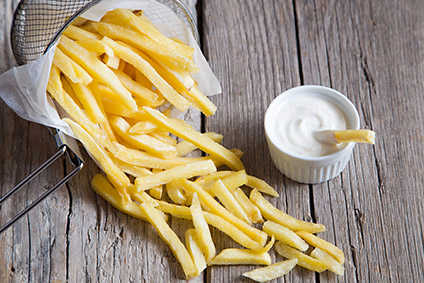
The Belgian government and food industry today (13 June) announced a bid to cut the nation’s calorie intake by 5%.
Under a “convention for a balanced diet” with the country’s government, food manufacturing association FEVIA and retail body Comeos said they would work to lower the amount of calories consumed by 5% by the end of 2017, based on the level eaten in 2012.

Discover B2B Marketing That Performs
Combine business intelligence and editorial excellence to reach engaged professionals across 36 leading media platforms.
Brand owners that are members of FEVIA are aiming to reach the target by the end of this year. Comeos members have a further 12 months.
Companies would look to hit the target through measures such as reducing the fat and sugar in foods sold in Belgium.
A spokesperson for FEVIA defended the scale of the target. “We will monitor next year, but the 5% is ambitious in a competitive international context. We can’t afford to introduce new products the consumer doesn’t like,” the spokesperson said. “Also a 5% reduction for an individual with a calorie intake of 10% above the recommended daily intake means a 50% reduction of the excess intake.”
The organisations could make further commitments on calories up to 2020 depending on the results of the initiative. The FEVIA spokesperson said some sectors had already made pledges for 2020. “The categories of sodas and dairy have already committed to an additional 5% reduction towards 2020. [It will] be decided following the monitoring next year for most categories.”

US Tariffs are shifting - will you react or anticipate?
Don’t let policy changes catch you off guard. Stay proactive with real-time data and expert analysis.
By GlobalDataThe convention also contains a pledge to “optimise” the composition of foods by, for example, reducing saturated fat and added fibre.
Maggie De Block, Belgium’s minister for public health, thanked the food industry for its “commitment”. She added: “Everyone must take responsibility when it comes to healthy and balanced diet: every citizen, but also the government and industry. A number of measures of our comprehensive nutrition plan are already well established, such as nutritional teams within hospitals or the Baby-Friendly Hospitals. The other pieces of the puzzle are being developed so that we get a good package of measures that will allow our people to eat healthier and in a more balanced way.”
Chris Moris, the CEO of FEVIA, insisted “dialogue and cooperation between the authorities and the food industry are the key to success, especially in a small country like Belgium”. Moris said a previous agreement between government and industry on salt between 2008 and 2013 “worked perfectly”, with intake down by over 10%. “The challenge of reducing energy intake is probably even greater. But let’s be clear, with this commitment we continue to take our responsibilities to help consumers move towards a healthy and balanced lifestyle,” Moris added.
According to OECD data published in February, Belgium has “a relatively low level of obesity” compared to the other 33 nations in the organisation, although the rate is rising. The OECD said 13.7% of Belgians aged 15 and over were classed as obese, compared to 3.7% in Japan, the OECD average of 19% and 35.3% in the US. “The rise in adult obesity in Belgium in the past decade – from 12% in 2000 to 14% in 2013 – should be treated as a public health priority,” the OECD said at the time.
Dominique Michel, CEO of Comeos, said education was “crucial” in the fight to reduce calorie intake. “We are aware that we can not solve the obesity problem only by adjusting the composition of the products. A healthy lifestyle is a combination of factors including a balanced diet and sufficient exercise. We are committed to contribute with partners, but remember that the consumer also plays an important role.”





